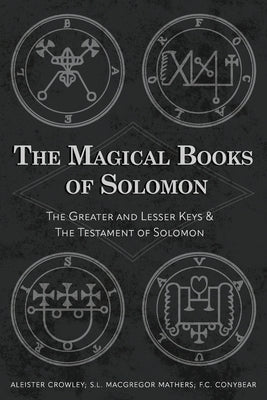Sale 10% Off Your First Order
Sale 10% Off Your First Order
- Home
- Beyond Good and Evil
Description
Summary Nietzsche opens with the provocative question, "Supposing truth is a woman-what then?" Then truth would need to be cajoled and flattered, not pursued with the tactless dogmatism of most philosophers. While philosophy must overcome its dogmatic thinking, it has at least provided our culture with the tension to spring forward into something new and better. Nietzsche catalogs a number of the dogmatisms inherent in philosophy, such as the separation of ideas into binary opposites like truth and falsehood; "immediate certainties," like Descartes' certainty that he is thinking; and the idea of free will. Philosophy is interested in giving us insight not into truth but into the minds of the different philosophers. Everything is governed by a will to power, and in philosophy, we see great minds trying to impose their will on the world by persuading others to see the world as they see it. The will to power is the fundamental drive in the universe. Behind truth, thought, and morality lie drives and passions that we try to mask behind a veneer of calm objectivity. What we call truth, for instance, is just the expression of our will to power, where we declare our particular perspective on reality to be objectively and universally true. Ultimately, all reality is best understood in terms of competing wills. Nietzsche praises "free spirits" who struggle to free themselves from the prejudices of others and to question their own assumptions. In particular, they will look beneath the "moral" worldview that examines people's motives and perceive instead the "extra-moral" worldview that examines the unconscious drives that determine our expressed motives.
About the Author
Friedrich Wilhelm Nietzsche, often Frenchified in [nit) is a German philosopher and philologist born October 15, 1844 at Röcken, Prussia, near Leipzig, and died August 25, 1900 in Weimar (Germany). This article is a biography of the philosopher. For the article about his thoughts, see main article: Friedrich Nietzsche. Friedrich Wilhelm Nietzsche was born in Röcken, Prussia, October 15, 1844, in a pastoral Lutheran family. His father, Karl-Ludwig, born in 1813, and his grandfather had taught theology. Nietzsche's father, who educated him a member of the Prussian royal family, was a protégé of Frederick William IV. But the disease (severe headaches) forced him to seek a parish in the region of his family to Naumburg. Karl-Ludwig and his wife, Franziska (1826 - 1897), moved to Röcken. They had two son, Friedrich Ludwig and Joseph (February 27, 1848 - January 4, 1850), and a daughter, Elisabeth Nietzsche (July 18, 1846). In August 1848, the father of Nietzsche had a fall and banged his head against the stone steps of a porch. He died a year later, mind astray, July 30, 1849 Some time later, in January 1850 the brother of Nietzsche died in turn: "By that time, I dreamed that I heard the organ in the church sadly resonate as funerals. And as I was looking for the cause of this, a grave was opened quickly and my father appeared walking in his shroud. He crossed the church and returned with a small child in her arms. In the morning, I told this dream to my beloved mother. Soon after, my little brother Joseph became ill, he had hysterics and died in a few hours.
About the Author
Friedrich Wilhelm Nietzsche, often Frenchified in [nit) is a German philosopher and philologist born October 15, 1844 at Röcken, Prussia, near Leipzig, and died August 25, 1900 in Weimar (Germany). This article is a biography of the philosopher. For the article about his thoughts, see main article: Friedrich Nietzsche. Friedrich Wilhelm Nietzsche was born in Röcken, Prussia, October 15, 1844, in a pastoral Lutheran family. His father, Karl-Ludwig, born in 1813, and his grandfather had taught theology. Nietzsche's father, who educated him a member of the Prussian royal family, was a protégé of Frederick William IV. But the disease (severe headaches) forced him to seek a parish in the region of his family to Naumburg. Karl-Ludwig and his wife, Franziska (1826 - 1897), moved to Röcken. They had two son, Friedrich Ludwig and Joseph (February 27, 1848 - January 4, 1850), and a daughter, Elisabeth Nietzsche (July 18, 1846). In August 1848, the father of Nietzsche had a fall and banged his head against the stone steps of a porch. He died a year later, mind astray, July 30, 1849 Some time later, in January 1850 the brother of Nietzsche died in turn: "By that time, I dreamed that I heard the organ in the church sadly resonate as funerals. And as I was looking for the cause of this, a grave was opened quickly and my father appeared walking in his shroud. He crossed the church and returned with a small child in her arms. In the morning, I told this dream to my beloved mother. Soon after, my little brother Joseph became ill, he had hysterics and died in a few hours.
RELATED PRODUCTS
-
$14.99 $19.95
-
-
$21.99 $29.99
-
-
-
$13.99 $18.99
-
$10.99 $16.00
-
$5.99 $8.99
-
$11.99 $12.95
-
$27.99 $29.95
-
$12.99 $16.95
-
$6.99 $9.95
RECENTLY VIEWED PRODUCTS
Related Products
Recently viewed products
Shopping cart
close
-
WHAT ARE YOU LOOKING FOR?Search
- Home
- Movies & TV
- Music
- Toys & Collectibles
- Video Games
- Books
- Electronics
- About us
- Castle Chronicles
- Contact us
- Login / Register



























